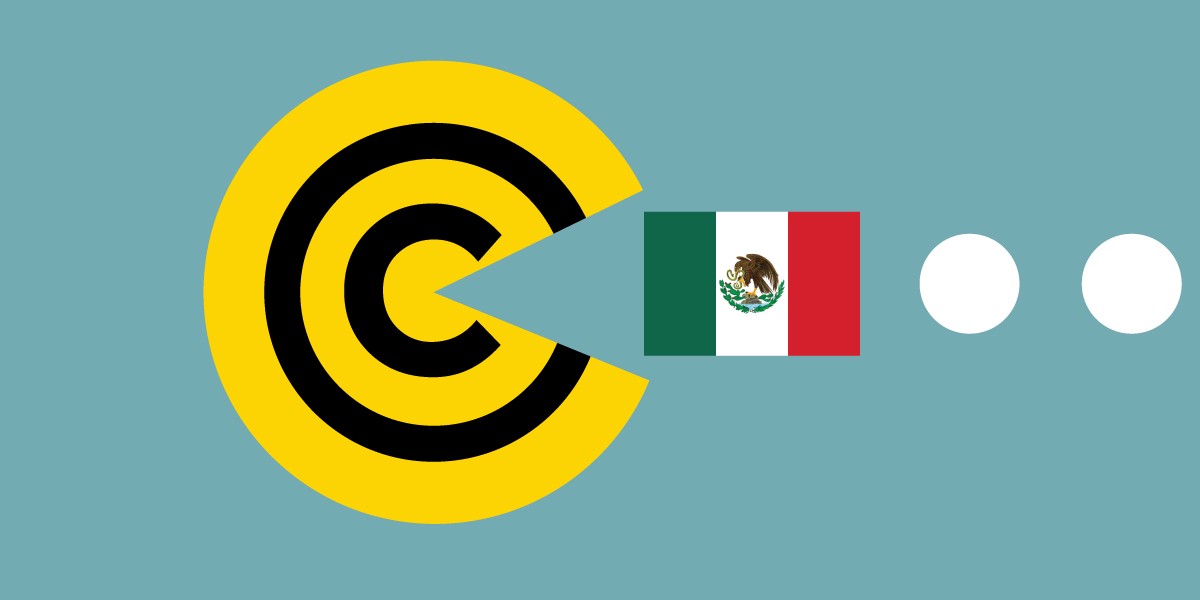On Jul 1, Mexico's Congress passed a new copyright law that pasted in the worst aspects of US and EU copyrights. The law passed without debate or consultation, as part of Donald Trump's #USMCA trade deal.
1/14
eff.org/deeplinks/2020…
1/14
eff.org/deeplinks/2020…

Then, a month later, Mexico's Human Rights Commission stopped the law (temporarily), referring it to the Mexican Supreme Court on the grounds that it could violate the Mexican Constitution.
2/14
eff.org/deeplinks/2020…
2/14
eff.org/deeplinks/2020…
They're right to worry. The US's digital copyright system - the #DMCA - is 22 years old and over that time, it has been a disaster for human rights. We should know. We've been fighting it since it was just a bill, working its way through Congress.
3/14
eff.org/issues/dmca
3/14
eff.org/issues/dmca
In consultation with our partner NGOs, and to help Mexican lawmakers, people and firms understand what's at stake, we've published a review of 22 years' worth of US DMCA human rights crises - the law that Mexico based their own new copyright on.
4/14
eff.org/deeplinks/2020…
4/14
eff.org/deeplinks/2020…
Start with #FreeExpression: the DMCA threatens device owners who bypass digital locks, even when they need to do so for legal uses: recording a program, remixing it for commentary or criticism, or capturing it for investigation or analysis.
5/14
eff.org/deeplinks/2020…
5/14
eff.org/deeplinks/2020…
Bans on breaking DRM interfere with free expression. Think of app stores: creators can't provide their copyrighted works to the audience unless the app store owners allow it. If they don't, you have to break DRM—and risk a lawsuit—to load it.
6/14
6/14
Then there's self-determination. DRM is used to enforce all kinds of arbitrary limits on protected private activity - think of #CPCM, the digital locks on DVB television signals. This DRM defines what a family (!) is, and is not.
7/14
eff.org/deeplinks/2020…
7/14
eff.org/deeplinks/2020…
The wealthy execs from the global north who created CPCM made sure it would work at your summer home and on your boat - but if you're a migrant whose family drifts apart and reforms, your family doesn't count.
8/14
8/14
Next: #Disability. Many tech companies have done excellent work in making their products accessible, but accessibility is a highly individual matter - every person needs different accommodations and no one can hope to anticipate all needs.
9/14
eff.org/deeplinks/2020…
9/14
eff.org/deeplinks/2020…
And while many laws protect the rights of people with disabilities, they are no match for the DMCA's ban on breaking DRM. Abbot Labs used DRM to block a project that helped people with diabetes connect their glucose meters to their insulin pumps.
diabettech.com/wearenotwaitin…
10/14
diabettech.com/wearenotwaitin…
10/14
US copyright law under the DMCA is so draconian that it blocks you from sharing a tool that prevents seizure-triggering strobe effects in streaming videos.
github.com/w3c/encrypted-…
11/14
github.com/w3c/encrypted-…
11/14
US copyright law also interferes with archives as well as other vital cultural institutions, such as galleries, museums and libraries - because storing, displaying and replaying works often requires bypassing DRM.
12/14
eff.org/deeplinks/2020…
12/14
eff.org/deeplinks/2020…
Our paper also explains ways in which US copyright law has interfered with national security, information security, repair, resilience, health care and education - a suite of national priorities that intersect with human rights.
13/14
13/14
We are greatly heartened that the Mexican Supreme Court has taken up this urgent issue, and we stand with our partners at @R3Dmx and @DerechosDigitales in urging the court to suspend the law while they consider it.
14/14
eff.org/deeplinks/2020…
14/14
eff.org/deeplinks/2020…
• • •
Missing some Tweet in this thread? You can try to
force a refresh












